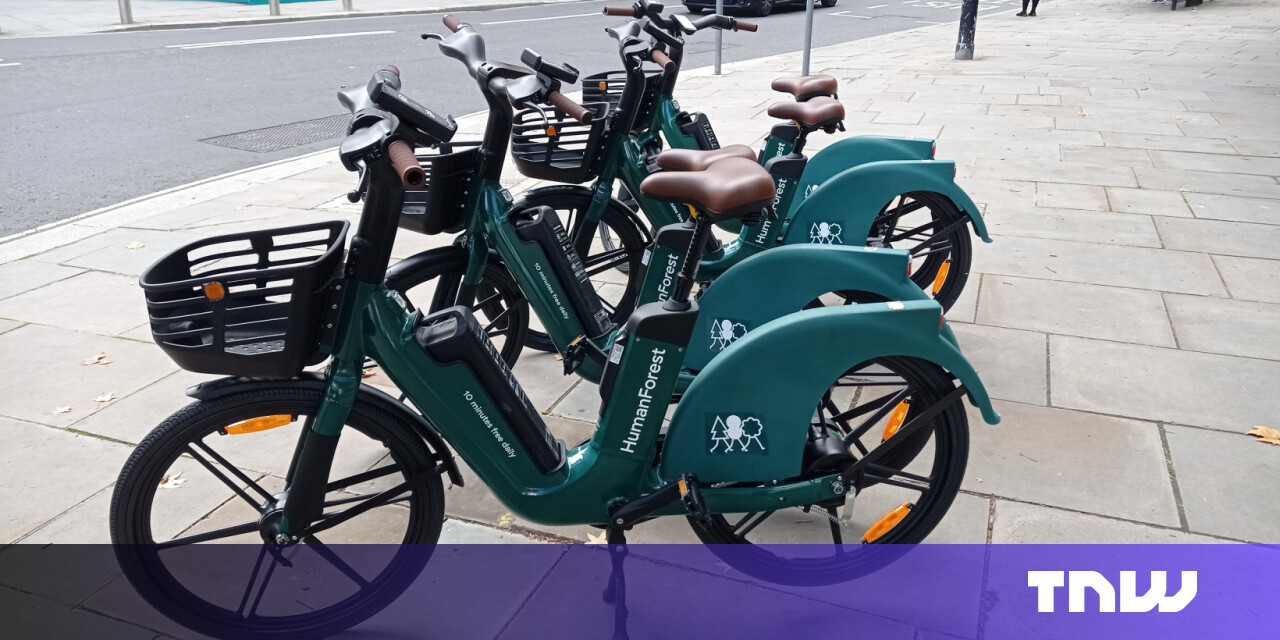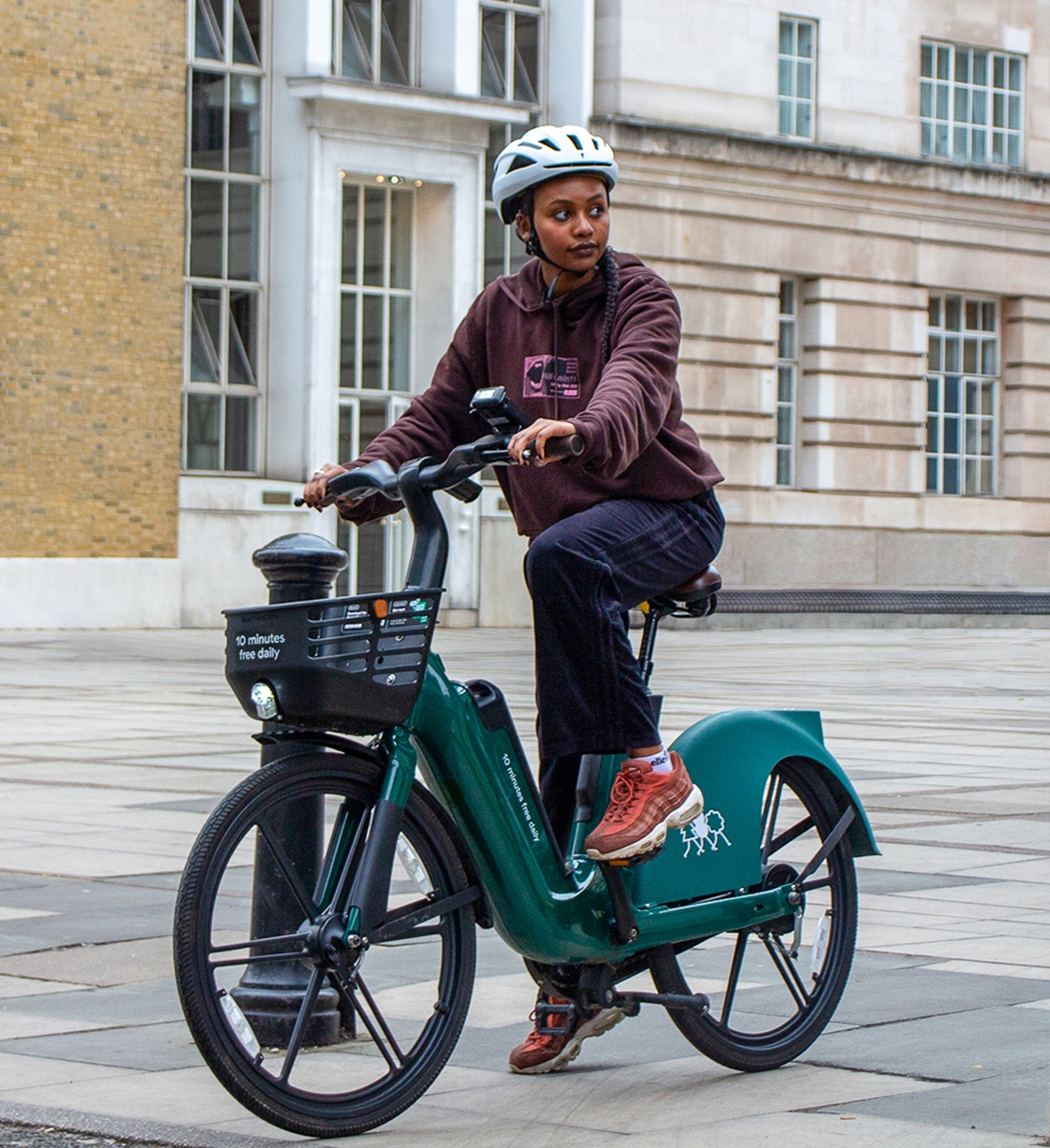
If you’ve been to London recently you may have noticed packs of dark green and brown ebikes lining the city’s streets. They belong to Forest, an aptly named startup that claims to be London’s cheapest and most sustainable shared ebike operator.
Its success stems from an advertising model unique to the world of micro-mobility.
Forest’s main competitors in the capital are Lime and Tier. All three ebike sharing schemes work in much the same way.
You open an app, find an ebike bike near you, scan a QR code, and get pedalling. You usually pay an unlock fee and then a per-minute fee thereafter.
TNW Conference, June 20-21 – Final 50% Flash Sale
For a limited time only – Don’t miss our final 50% discount until Thursday to join our the heart of tech.
But Forest is a little different from the other two. Firstly, it offers 10-minutes free on all rides. While this might first appear like a temporary tactic to gain market share, the company maintained this feature since it launched in 2021.
After 10 minutes, you’ll be charged £0.29 (€0.34) a minute. This is comparable to the per-minute rate of their competitors.
My fellow TNW reporter Thomas Macaulay recently took a Forest ebike on a 21-minute ride around central London. This is about the average duration of a bike rental in the capital.
Here’s a breakdown of Thomas’ trip:
Thomas’ ride cost £4.19, including a £1 unlock fee. For comparison, Lime costs £6.09 over the same distance.
“We want to lower the wall of entry to micromobility,” Michael Stewart, co-founder at Forest, tells TNW. “At the moment, it’s just too expensive.”
Riding on ad revenue
Forest manages to undercut the competition by allowing brands to advertise on its app.
Ads appear at the start and end of rides in the app. Users can even watch videos to earn free trips. If you watch a 30-second video you earn one minute free that you can redeem next time you ride.
Stewart says Forest is the only micromobility startup globally that uses advertising to subsidise the cost of its rides. The adverts tend to focus on sustainability-related products and brands.
Today, Forest also announced that it has teamed up with UK startup Ecoswap to create a digital gift card.
“We designed the gift card so you can easily gift rides free to your friends,” Antony Gutsa, founder at Ecoswap, tells us.
You can load a minimum of £5 on the card (for 60 minutes riding), and a maximum of £40 (for 1200 minutes).
Like its competitors, Forest also offers a subscription plan. For £60 a month you get 1,800 minutes — or 60 minutes per day. Interestingly, you can access this subscription for a discounted price under London’s Cycle to Work scheme.
Greener rides
Forest’s ebikes, and the electric vans that service them, are all charged using renewable energy, it says.
The startup offsets its upstream emissions (created during the manufacture of the bikes themselves) by supporting a project that plants giant redwood trees in the British countryside.
 Forest bills itself as London’s most sustainable shared ebike operator. Credit: Forest
Forest bills itself as London’s most sustainable shared ebike operator. Credit: Forest
To avoid hoards of ebikes blocking pavements and walkways, Forest also incentivises riders to finish their trips at parking zones jotted throughout London. They also employ teams of “Guardians” that patrol the streets to spot issues, and move bikes if there are complaints.
“London is one of the world’s most expensive cities for public transport, so cheaper options are always interesting,” Thomas says.
“Ebikes are a particularly attractive alternative to me, as my nearest tube station is a bit of a walk away. For short journeys, they’re a great option — as long as the parking is convenient.”
As for the ebike itself, it’s a classic step-through design with a built-in basket, smartphone holder, and adjustable seat post.
“The bike ride was pretty easy and felt safe,” Thomas says. “Acceleration was fairly slow but that’s probably a good thing. I managed to briefly touch 27 km/h but it generally seemed to lock the speed at 25 km/h.”
“The kickstand was a bit fiddly at first and the basket rattled a bit but the seat was easy to adjust and the brakes worked well.
“The parking zones were a bit far away, though, at least in my area. That’s one downside.”
Forest currently has around 10,000 bikes and half a million users in London, the only city it currently operates in. The startup has raised a total of £17mn to date.
London’s public bicycle scheme Santander supplies shared ebikes that are considerably cheaper than Forest but these are state-subsidised and docked, so we discounted them from this comparison.





